Lisztomania is a British film of genre Biography directed by Ken Russell released in USA on 10 october 1975 with Roger Daltrey
Lisztomania (1975)

If you like this film, let us know!
- Infos
- Casting
- Technical infos
- Photos
- Videos
- Film quotes
- Characters
- Music
- Awards
Lisztomania is a 1975 film by Ken Russell, drawn from a biography of Franz Liszt.
Depicting the flamboyant Liszt as the first classical pop star, Lisztomania features contemporary rock star Roger Daltrey (of The Who) as Franz Liszt. The film was released the same year as Tommy, which also starred Daltrey and was directed by Russell. The film is derived, in part, from an actual "kiss-and-tell" book, Nélida, by Marie d'Agoult, about the couple's affair.
The term "Lisztomania" was coined by the German romantic literary figure Heinrich Heine to describe the massive public response to Liszt's virtuosic piano performances. At these performances, there were allegedly screaming women, and the audience was sometimes limited to standing room only.
Rick Wakeman, from the progressive rock band Yes, composed the Lisztomania soundtrack, which included synthesiser arrangements of works by Liszt and Wagner. He also appears in the film as the Nordic god of thunder, Thor. Daltrey and Russell wrote the lyrics for the soundtrack, and Daltrey provided vocals.
Of the other rock celebrities appearing in the film, Ringo Starr, drummer of The Beatles, appears as the Pope.
This film was first to use the new Dolby Stereo sound system.
Synopsis
Rather than a straightforward narrative, the film presents Liszt's life through a series of episodes. At the start of the film, Liszt is caught in bed with Marie d'Agoult by her husband the Count d'Agoult. The Count challenges Liszt to a fight with sabres but Marie begs the count to let her share Liszt's fate. The Count then orders his staff to trap Liszt and Marie into the body of a piano, nailing it shut, and then leaving it on railroad tracks.Actors

Roger Daltrey
(Franz Liszt)
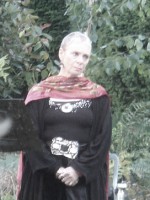
Sara Kestelman
(Princess Carolyn)

Paul Nicholas
(Richard Wagner)

Ringo Starr
(The Pope)
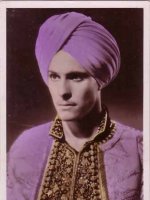
John Justin
(Count d'Agoult)
Comments
Leave comment :
Suggestions of similar film to Lisztomania
There are 74 films with the same actors, 24 films with the same director, 46004 with the same cinematographic genres (including 4 with exactly the same 4 genres than Lisztomania), 6745 films with the same themes (including 202 films with the same 3 themes than Lisztomania), to have finally 70 suggestions of similar films.If you liked Lisztomania, you will probably like those similar films :
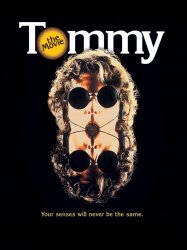
Tommy (1975)
, 1h51Directed by Ken Russell
Origin United-kingdom
Genres Drama, Musical theatre, Fantasy, Musical
Themes Medical-themed films, Films about music and musicians, Musical films, Films about disabilities, La cécité
Actors Roger Daltrey, Ann-Margret, Oliver Reed, Elton John, Tina Turner, Paul Nicholas
Rating65%





(Note: This narrative is given song by song. For formal song playlist and list of song credits, see Tommy (soundtrack).)

Mahler (1974)
, 1h55Directed by Ken Russell
Origin United-kingdom
Genres Drama, Biography, Musical
Themes Films about music and musicians, Transport films, Rail transport films, Films about classical music and musicians, Musical films
Actors Robert Powell, Georgina Hale, Lee Montague, Miriam Karlin, Ronald Pickup, Rosalie Crutchley
Rating69%





After a spectacular prelude, the film begins on a train journey with Gustav Mahler (Robert Powell) and his wife Alma (Georgina Hale) confronting their failing marriage. The story is then recounted in a series of flashbacks (some of which are surrealistic and nightmarish), taking one through Mahler's childhood, his brother's suicide, his experience with anti-semitism, his conversion from Judaism to Catholicism, his marital problems, and the death of his young daughter. The film also contains a surreal fantasy sequence involving the anti-Semitic Cosima Wagner (Antonia Ellis), widow of Richard Wagner, whose objections to his taking control of the Court Opera were supposedly removed by his conversion to Catholicism. In the process, the film explores Mahler's music and its relationship to his life.
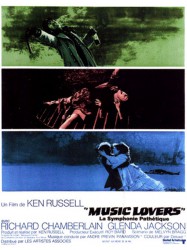
The Music Lovers (1971)
, 2h2Directed by Ken Russell
Origin United-kingdom
Genres Drama, Biography, Musical, Romance
Themes Films about music and musicians, Films about sexuality, LGBT-related films, Films about classical music and musicians, Musical films, LGBT-related films, LGBT-related film
Actors Richard Chamberlain, Glenda Jackson, Kenneth Colley, Christopher Gable, Max Adrian, Andrew Faulds
Rating71%





Composer, conductor and teacher Peter Ilych Tchaikovsky struggles against his homosexual tendencies by marrying, but unfortunately he chooses a wonky, nymphomaniac girl whom he cannot satisfy.
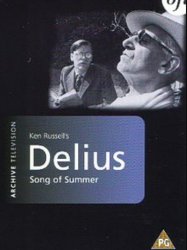
Song of Summer (1968)
, 1h12Directed by Ken Russell
Origin United-kingdom
Genres Drama, Documentary, Musical
Themes Films about music and musicians, Films about classical music and musicians, Musical films
Actors Christopher Gable, Max Adrian, David Collings, Ken Russell
Rating2%






Aria (1987)
, 1h30Directed by Derek Jarman, Charles Sturridge, Robert Altman, Nicolas Roeg, Julien Temple, Jean-Luc Godard, Bruce Beresford, Franc Roddam, Ken Russell, Bill Bryden
Origin United-kingdom
Genres Drama, Comedy, Anthology film, Musical, Romance
Themes Films about music and musicians, Musical films, Films based on operas
Actors Theresa Russell, Beverly D'Angelo, Elizabeth Hurley, Buck Henry, Bridget Fonda, John Hurt
Rating57%





De grands airs d'opéra vus par dix réalisateurs sur des musiques de Charpentier, Korngold, Leoncavallo, Lully, Puccini, Rameau, Verdi, Wagner. L'image est parfois sans rapport avec le thème de l'opéra, d'autres fois plus proche.
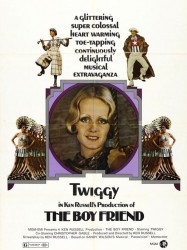
The Boy Friend (1971)
, 2h17Directed by Ken Russell
Genres Comedy, Musical, Romance
Themes Films about music and musicians, Films about sexuality, Théâtre, LGBT-related films, Musical films, Films based on plays, Films based on musicals, LGBT-related films, LGBT-related film
Actors Twiggy, Christopher Gable, Max Adrian, Tommy Tune, Brian Murphy, Barbara Windsor
Rating67%





The plot exists on three levels. First there is the frame story where in the south of England in the 1920s a struggling theatrical troupe is performing a musical about romantic intrigues at a finishing school for young women in the south of France. To ongoing backstage dramas and audiences smaller in number than the cast, two extra ingredients arrive: a famous Hollywood film producer turns up to see the show, and Polly, the mousy assistant stage manager, is forced to go on when the leading lady breaks a leg. As Polly struggles to keep her cool while acting opposite the male lead she secretly loves, the rest of the company backstab each other trying to impress the impresario.

Diva: The Video Collection (2006)
, 2h13Directed by Stephen Frears, Paul Verhoeven, Paul Boyd, Ken Russell, Hugh Hudson
Themes Films about music and musicians, Documentary films about music and musicians, Documentaire sur une personnalité, Musical films
Actors Sarah Brightman

The Kids Are Alright (1979)
, 1h49Origin United-kingdom
Genres Documentary, Musical
Themes Films about music and musicians, Documentary films about music and musicians, Documentaire sur une personnalité, Musical films
Actors Roger Daltrey, Ringo Starr, Steve Martin, Ken Russell, Melvyn Bragg
Rating79%





A travers des concerts et des interviews, ce film nous offre un "regard intérieur" sur ce célèbre groupe de rock, "The Who". Il capture leur folie loufoque et leurs singeries scandaleuses de la formation initiale du groupe à son grand succès "Who Are You", et présente la dernière performance du batteur Keith Moon juste avant sa mort.
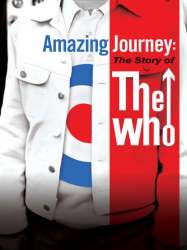
Directed by Murray Lerner
Origin United-kingdom
Genres Documentary, Musical
Themes Films about music and musicians, Documentary films about music and musicians, Documentaire sur une personnalité, Musical films
Actors Roger Daltrey, Ringo Starr, Bill Curbishley, Sting
Rating81%






Yellow Submarine (1968)
, 1h30Directed by Al Brodax, George Dunning
Origin United-kingdom
Genres Science fiction, Comedy, Fantasy, Adventure, Musical, Animation
Themes Seafaring films, Monde imaginaire, Films about music and musicians, Transport films, Submarine films, Musical films, Les Beatles
Actors Paul Angelis, The Beatles, John Clive, John Lennon, Dick Emery, Paul McCartney
Rating73%





At the beginning of the story, Pepperland is introduced by a narrator as a cheerful, music-loving paradise under the sea, protected by Sgt. Pepper's Lonely Hearts Club Band. The titular Yellow Submarine rests on an Aztec-like pyramid on a hill. At the edge of the land is a range of high blue mountains.
 Connection
Connection